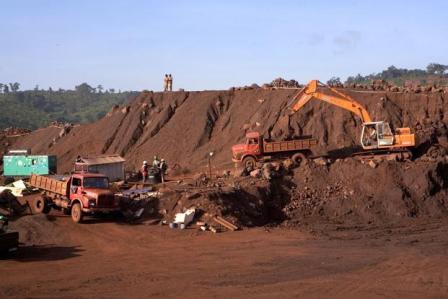New Delhi: In an unprecedented move, a three-judge bench of the Supreme Court led by Justice SK Kaul, after reserving the order on a petition filed by Sarda Mines seeking execution of mining lease in its favour, has directed that the petition shall be heard afresh by a new bench. The bench cited difference in perception on the legal nuances of the case as a reason for referring the case to a new bench. The bench also comprising Justices CT Ravikumar and Sudhanshu Dhulia had reserved its order November 2 on the petition seeking direction to Odisha government to execute mining lease deed in its favour for the remaining 10 years out of the 30 years renewal that it was entitled to as per the Orissa HC’s 1991 and 1998 orders. “We had reserved orders in this matter November 2, 2023. We had some discussion, but there is some difference in perception on the legal nuances of this case. One of us is demitting office shortly. We, thus, consider it appropriate to direct that the matter be placed before the Chief Justice of India to be assigned to a completely different Bench, which may have an opportunity to afresh apply its mind to the case,” the court said. Significantly, Justice SK Kaul is demitting the office December 25 after a tenure of over six years and 10 months.
Since the Supreme Court will be on winter break from December 18 till January 2, Friday was the last working day of Justice Kaul. It is to be mentioned here that Sarda Mines Private Ltd (SMPL) has filed a special leave petition (SLP) in the apex court against an order of the Orissa High Court wherein the HC had held that the company had waived its right for grant of lease of 30 years which it had obtained earlier by executing a lease for 20 years and the provisions of Mines and Minerals Development Act, 2015 operated as a bar to seek any renewal beyond 20 years. The mining lease is sought in respect of over 947.046-hectare Thakurani B-Block Iron Ore Mines in Keonjhar.
The state government had January 13 last year asked SMPL to hand over possession of the mines, including stock of minerals, plant and machinery, building structures and others to the mining officer. According to the mining company, the state government towards the end of 20 years had started to circumvent its rights for the remaining period of 10 years on one or the other pretext.






































